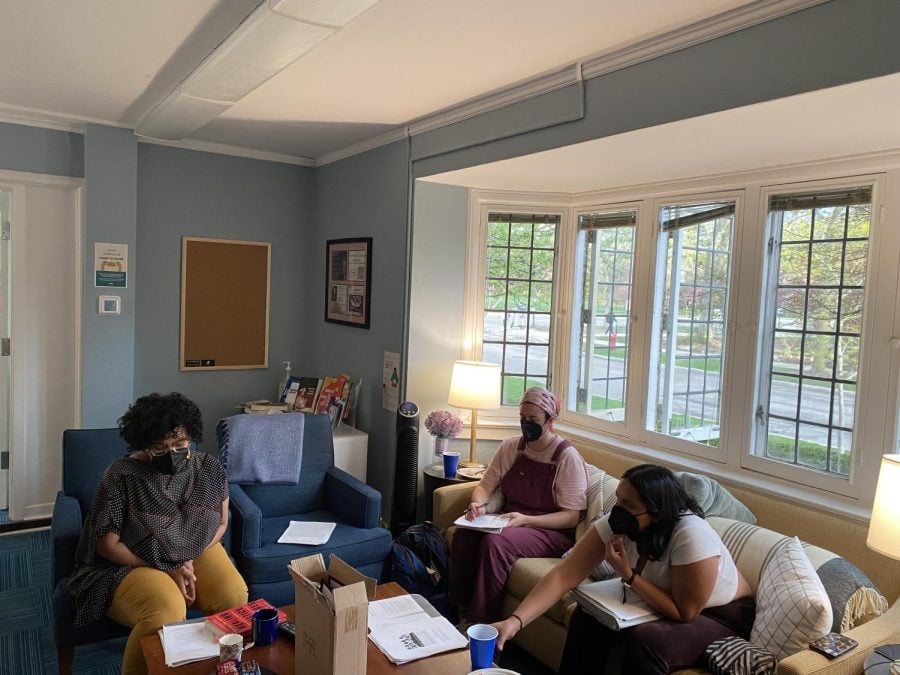Activist Stacy Erenberg centers healing justice in Taking Action for Reproductive Justice series
Samantha Powers/The Daily Northwestern
During Thursday’s healing justice event at the Women’s Center, participants mapped the geographical, economic, physical and spiritual conditions of their communities through a writing exercise.
April 21, 2023
Northwestern community members gathered for a discussion facilitated by Chicago activist Stacy Erenberg in the Women’s Center on Thursday. The conversation centered on healing justice, a movement that seeks to address generational trauma and empower marginalized people.
The discussion was the third event in the center’s four-part series: Taking Action for Reproductive Justice. The series is open to those interested in organizing for reproductive justice, abortion rights and bodily autonomy.
Women’s Center Director Sarah Brown said activism means organizing for the community while also prioritizing self-care — an aspect of healing justice.
“You need to know what you’re talking about, you need to know how to get involved, and you need to know how to sustain yourself and that (social justice) work,” Brown said.
With the series, Brown said she wants to show participants the full breadth of activism by addressing the emotional weight of organizing.
During the event, participants mapped the geographical, economic, physical and spiritual conditions of their communities through a writing exercise. Using their newfound knowledge about healing justice, they reflected on these conditions to identify things they hope to change in their communities through organization.
Erenberg led the conversation and shared her experience as the co-founder of Sage Community Health Collective, an organization that aimed to provide care outside of the traditional medical context before its 2016 closure.
Erenberg said the medical-industrial complex can create harmful power dynamics between patients and practitioners. For instance, she said, Black women’s maternal mortality rates are disproportionately high in the U.S.
She said the SCHC sought to make people feel comfortable in a medical space by having people give consent for each step of the treatment process.
“It’s really about body autonomy,” Erenberg said. “Anybody who came to our clinic, we wanted to encourage them to have complete control over everything that was happening.”
Erenberg said modern medicine marginalizes people, including Black women and transgender people, by providing a lower quality of care.
To counteract that, Erenberg said she tried to give patients the skills to advocate for themselves in a medical context. She said she avoided immediate diagnoses and instead tried to account for the nuance of her patients’ pain.
“I would say, ‘I’m not the expert,’” she said. “I have experience, but you are the expert in your own body.”
Weinberg sophomore Gwen Setia, co-founder of NU Repro, attended. Setia said she sees reproductive justice tying into healing justice.
She said reproductive justice means more than abortion access. It encompasses birth control, domestic violence and other issues about choice.
“Folks who are marginalized in American society, and who maybe have a lot of generational trauma related to that marginalization of their community, are who we need to uplift when we think about reproductive justice,” Setia said.
Email: samanthapowers2026@u.northwestern.edu
Twitter: @SQPowers04
Related Stories:
— NU students, faculty gather for fireside chat on reproductive justice
— ‘Taking Action for Reproductive Justice’ to level up community activism
— Social media serves as channel for reproductive justice advocacy



